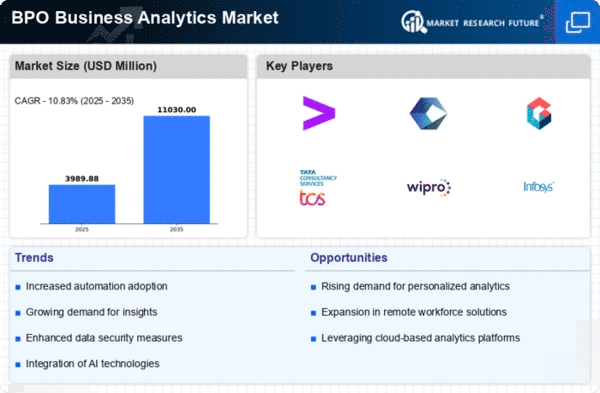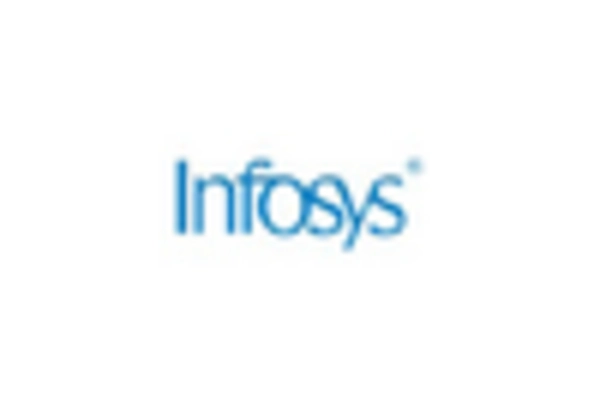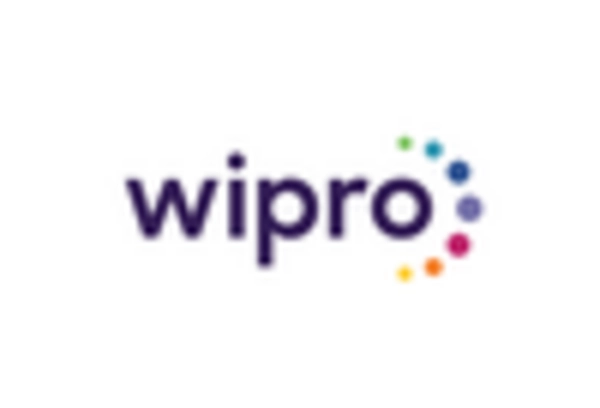Market Share
BPO Business Analytics Market Share Analysis
In the ever-evolving landscape of the Business Process Outsourcing (BPO) Business Analytics market, companies employ various strategies to gain a competitive advantage and solidify their market share. One pivotal strategy revolves around differentiation, wherein companies focus on offering unique analytics solutions tailored to specific industry verticals or business functions. This could involve developing specialized analytics tools or methodologies optimized for sectors such as healthcare, finance, or retail, catering to the unique data analytics needs and regulatory requirements of each industry. By emphasizing their expertise in specific domains, companies can attract clients seeking specialized analytics solutions, thereby carving out their niche in the competitive BPO Business Analytics market.
Furthermore, cost leadership serves as a fundamental strategy for many companies in the BPO Business Analytics market. With increasing pressure on businesses to optimize costs and maximize ROI, companies strive to offer cost-effective analytics solutions without compromising on quality. This may involve streamlining internal processes, leveraging economies of scale, or adopting efficient analytics tools and technologies to drive down operational costs. By providing competitively priced BPO Business Analytics services, companies can appeal to cost-conscious clients seeking to derive insights from their data while minimizing expenditure. Additionally, flexible pricing models and scalable service offerings can further enhance the attractiveness of solutions, catering to businesses of varying sizes and budgetary constraints.
Moreover, market segmentation plays a crucial role in shaping positioning strategies within the BPO Business Analytics market. Companies often identify specific customer segments based on factors such as industry vertical, organizational size, or analytics maturity. By tailoring their analytics solutions to address the unique needs and pain points of different segments, companies can effectively target their marketing efforts and deliver customized value propositions. For instance, BPO Business Analytics providers may develop industry-specific analytics solutions tailored to the regulatory requirements and business challenges faced by sectors such as manufacturing, hospitality, or telecommunications. Similarly, offerings may be adapted to cater to the needs of small and medium-sized businesses versus large enterprises, ensuring relevance and resonance across diverse customer segments.
Additionally, strategic partnerships and collaborations play a pivotal role in expanding market share within the BPO Business Analytics market. Collaborating with technology providers, software vendors, or industry experts enables BPO companies to enhance the breadth and depth of their analytics offerings. For example, partnerships with leading analytics software providers may provide access to advanced analytics tools and algorithms, allowing BPO companies to deliver more sophisticated analytics solutions to their clients. Similarly, collaborations with industry associations or research institutions can help BPO companies stay abreast of emerging trends and best practices in business analytics, enhancing their credibility and thought leadership in the market.
Furthermore, innovation and technological advancement are key drivers of market share growth in the BPO Business Analytics market. Companies invest in research and development to develop innovative analytics solutions, harnessing emerging technologies such as artificial intelligence, machine learning, and predictive analytics to unlock new insights from data. This may involve developing proprietary analytics algorithms, building custom analytics dashboards, or integrating advanced analytics capabilities into existing business processes. By staying at the forefront of innovation, BPO companies can differentiate their offerings, attract clients seeking cutting-edge analytics solutions, and maintain a competitive edge in the rapidly evolving market.
Moreover, brand reputation and trustworthiness are critical considerations for clients when selecting a BPO Business Analytics provider. Companies cultivate strong brand identities through consistent delivery of high-quality analytics services, exemplary customer service, and transparent business practices. Positive client testimonials, case studies, and industry certifications can further bolster a company's reputation and credibility in the eyes of potential clients. By establishing themselves as trusted partners, BPO Business Analytics providers can foster long-term client relationships and drive customer loyalty in an environment where trust and reliability are paramount.
Additionally, geographical expansion and internationalization strategies play a pivotal role in capturing market share within the global BPO Business Analytics market. Companies may pursue opportunities to enter new regions or countries by establishing local presence, forming strategic partnerships with regional players, or adapting offerings to suit local market dynamics and regulatory requirements. By expanding their footprint geographically, BPO Business Analytics providers can tap into new client bases, capitalize on emerging market opportunities, and diversify their revenue streams, thereby strengthening their position in the competitive marketplace.


















Leave a Comment